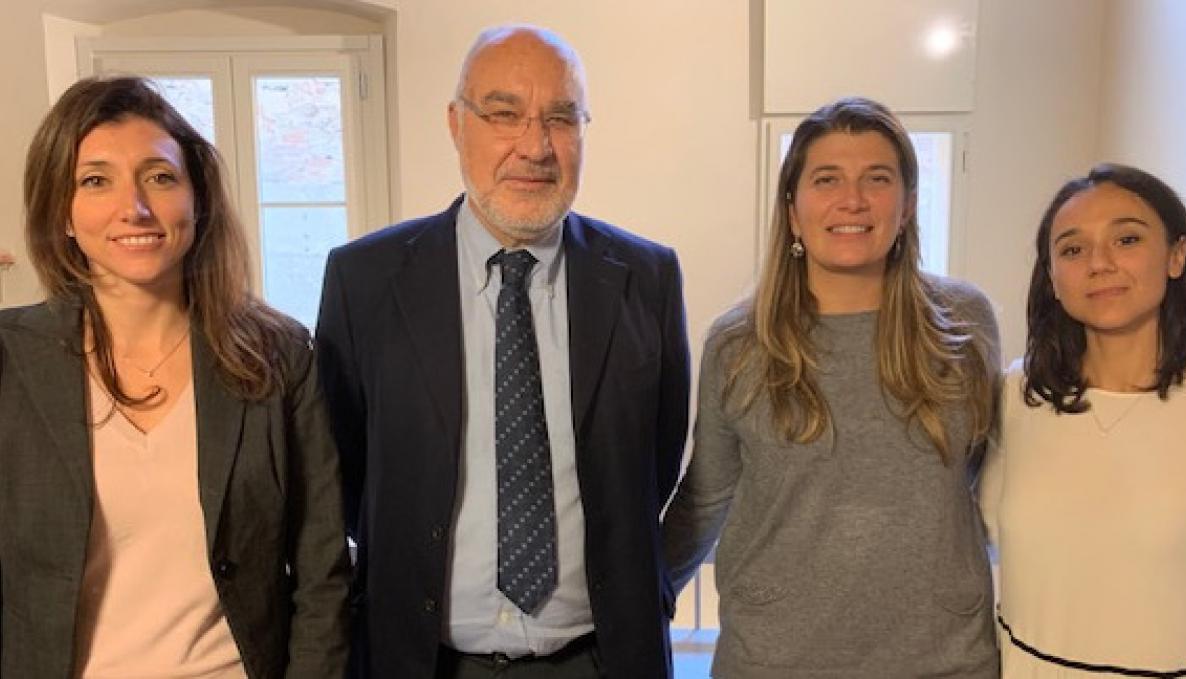Asylum and Immigration Legal Clinics: Sant’Anna School Dirpolis (Law, Politics and Development) Institute cooperates with the Court of Florence in widening access to legal assistance for migrants. Case-specific and COI reports

The webinar “Protezione internazionale e informazioni sui Paesi d’Origine (COI): modelli europei e specificità italiane” taking place on May 6 is focused International Protection and on the ‘Country of Origin Information’ (COI), country-specific or case-specific reports that are used to support decision-making in the asylum process. Since 2019, the Asylum and Immigration Legal Clinics promoted by Sant’Anna School Dirpolis Institute and the Court of Florence have expanded to increase access to legal aid for immigrants and refugees. The legal clinics focus on asylum and immigration law training and “learning by doing” method and collaborate with 20 law students to provide support and assistance to asylum-seekers, reunited families, and citizenship applicants.
Students are required to provide legal advice and write the “schede di lite” immigration litigation reports that highlight their expert role within the national and international asylum and immigration systems in facilitating access to international protection through local courts. Over the past year, they have delivered the COI reports South Nigeria, Pakistan and Ghana then published on the website of Dirpolis DREAM research area. These reports provide detailed information on asylum seekers conditions in their countries because of violation of refugee and human rights (such as discrimination for reasons of race, religion, nationality, political opinion, etc.). The publication of COI reports raises ethical and legal concerns together with procedural weaknesses in the use of COI with respect to the accuracy, relevance and reliability of information which aggravates the existing power imbalance between asylum seekers and host country governments. The role of law experts is to facilitate dissemination and wider publication of case-specific reports and mitigate data security risks by reducing the amount of data collected and stored under the EU General Data Protection Regulation.
The Legal Clinic professionals have teamed up with the European Network for Clinical Legal Education to help local actors provide a very critical and timely response to the precarious situation of the rising number of migrants and refugees. Students in these Clinics have represented asylum-seekers and learned from practical asylum and immigration cases assessing the factual claims, the consistency with the background evidence, and the consequences of established facts.
As Emanuele Rossi, professor of Constitutional Law and the director of the WISS Lab has noted: “In the light of the maxim Ex facto oritur ius, the Legal Clinic learning experience allows students to gain research methodology from a variety of legal, educational and organizational settings in order to share knowledge and best practices and ultimately promote justice.”
Researcher Francesca Biondi Dal Monte explained that: “Asylum and Immigration Legal Clinics fill the gap between research and practice. The asylum determination practice and the protection of asylum seekers have followed a functional case study approach, dealing with real-world situations.
The Court of Florence has identified COI and assessment of decisions developed by national and international governmental agencies such as the European Asylum Support Office exploring the right to social protection and the right to work in Europe.”
Click here for video recordings of the Court of Florence proceedings. Current COVID-19 health concerns have postponed many events. Future events may be feasible to host in-person experiences as soon as the government eases the lockdowns.
The webinar “Protezione internazionale e informazioni sui Paesi d’Origine (COI): modelli europei e specificità italiane” (May 6, via Zoom platform) features keynote speakers Mario Savino (coordinator, ADiM – Accademia di Diritto e Migrazioni), Flora di Donato (University of Napoli Federico II), Alice Riccardi (University of Roma Tre), Francesca Biondi Dal Monte (Sant’Anna School), Adriana Di Stefano (University of Catania), Angelo Abignente (University of Napoli Federico II), Antonio Di Marco (Court of Napoli), Michele Gonnelli (EASO COI Information Officer, Malta), Damiana Rosset (Université de Neuchatel).
Cover photo (from left to right): Francesca Biondi Dal Monte, Emanuele Rossi, Elena Vivaldi, Mariateresa Veltri.



